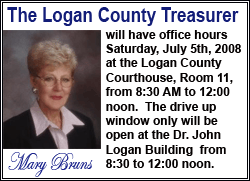|
 In contrast to the excitement and hope for change that marked the first round of elections in March, a defiant President Robert Mugabe is the only candidate in this round, and the election was expected only to deepen the nation's political crisis. In contrast to the excitement and hope for change that marked the first round of elections in March, a defiant President Robert Mugabe is the only candidate in this round, and the election was expected only to deepen the nation's political crisis.
Opposition leader Morgan Tsvangirai, who withdrew from the runoff after an intense campaign of state-sponsored violence, said the results of the election would "reflect only the fear of the people of Zimbabwe." Dozens of opposition supporters have been killed and thousands of people injured.
Tsvangirai's name remains on the ballot because electoral officials say his withdrawal Sunday came too late.

Mugabe, the country's ruler since independence in 1980, was expected to use violence and intimidation to get people to vote for him in the hope that a massive turnout could demonstrate he still has support and to make his inevitable victory appear credible.
Opposition party treasurer Roy Bennett, in exile in neighboring South Africa, called on the world to acknowledge that Mugabe's rule is illegitimate.
"The whole election is a farce," he told Associated Press Television News. "Nobody should endorse that election" and "all pressure that is possible ... should be brought to bear" on Mugabe by African leaders.
State radio acknowledged that voters were only "trickling" into stations in the countryside, attributing the low turnout to chilly weather that had temperatures below zero overnight.

About 20 paramilitary police in riot gear were stationed in a central Harare park then began patrolling the city in a truck. Militant Mugabe supporters roamed the streets, singing revolutionary songs, heckling people and asking why they were not voting.
"I've got no option but to go and vote so that I can be safe," explained a young woman selling tomatoes.
The opposition scattered fliers overnight calling for a boycott.
"Is it necessary to vote?" said Cephas Sango, a Harare resident reading a flier. He said he had heard warnings that Mugabe party militants plan to check for the ink staining voters' fingers and those staying away face the threat of violence.
The opposition has called on people voting out of fear to spoil their ballots.
In the capital's crowded Mbare suburb, lines built up at polling stations as voters arrived in groups, led by marshals who were carrying books filled with names. In one side street, names were being called and ticked off as a group of about 25 people gathered before heading to a tented polling station.

Up to 300 people waited at one station there. But elsewhere, the voters were outnumbered by an intimidating police presence.
Assistant Police Commissioner Wayne Bvudzijena told state radio that they had doubled the number of police at poll stations to "guarantee peace and security."
He said there were no reports of violence by midmorning, but that any violence would be met with "the full force of the law."
In an e-mail voting day message, Tsvangirai said he expected voters to be threatened, told to record their ballot paper numbers and to have their votes recorded by cameras. He advised them not to resist.
"God knows what is in your heart. Don't risk your lives," he said in the message.
In the middle-class Greendale suburb, Eunice Maboreke came out of a polling station and told a reporter "my vote is my secret."
Another voter, Livingstone Gwaze, said he voted for Mugabe.

"Things will get better. There is darkness before light," he said.
Another man refused to give his name but held up his ink-stained finger to show he had voted.
Riot police and regular uniformed officers manned roadblocks on approaches to the South African Embassy, where at least 200 fugitives of violence in the countryside were camped with blankets and bundles of belongings in the parking lot.
[to top of second column] |
 On the campaign trail Thursday, Mugabe said he was "open to discussion" with Tsvangirai's Movement for Democratic Change, but only after the vote. Mugabe had shown little interest in talks and his government had scoffed at Tsvangirai's call Wednesday to work together to form a transitional authority.
World leaders have dismissed the runoff.
Foreign ministers from the Group of Eight industrialized meeting in Japan Friday said they would not recognize the outcome of the election.
"We deplore the actions of the Zimbabwean authorities -- systematic violence, obstruction and intimidation
-- which have made a free and fair presidential runoff election impossible," they said in a joint statement.

Nigeria is the latest African nation to call for its postponement, even though its own presidential election in 2007 was riddled with fraud.
Mugabe jumped on the contradictions on the continent, which has suffered a string of bad elections in recent years in Kenya, Ethiopia, Congo and Uganda. International intervention came only in Kenya this year, where a transitional unity government was formed after more than 1,000 people were killed in postelection violence.
"There are countries that have had elections in worse conditions in Africa and we have never interfered," Mugabe told a rally Thursday.
He said he would confront some leaders at an African Union summit that opens Monday in Egypt.
"I would like some African leaders who are making these statements to point at me and we would see if those fingers would be cleaner than mine," he said.

Tsvangirai was first in a field of four in the March vote, an embarrassment to Mugabe. But the official tally said he did not gain the votes necessary to avoid a runoff against Mugabe.
Tsvangirai's party and its allies also won control of parliament in March, dislodging Mugabe's party for the first time since 1980.
Mugabe was once hailed as a post-independence leader committed to development and reconciliation, but in recent years has been denounced as a dictator intent only on holding onto power.
Efforts to dislodge him at the ballot box have repeatedly been stymied by fraud and intimidation.
As during the first round, individual polling stations will have to post tallies, an innovation hammered out in talks between the opposition and Mugabe's party mediated by South African President Thabo Mbeki. That allowed the independent Zimbabwe Election Support Network and the opposition to compile their own results, making fraud difficult. But this time, the network said it was unable to field monitors because they had not been accredited by the government. The opposition also will not be monitoring results.

The African Union, the main regional Southern African Development Community and African parliamentarians were observing the runoff, but do not have enough people to make a difference.
Two Zimbabwean freelance journalists were detained by police Friday at a polling station because they could not produce proof that they were accredited with the government. Hundreds of journalists, mainly from Western media organizations, have been banned from covering Zimbabwe's elections.
[Associated
Press; By ANGUS SHAW]
Copyright 2008 The Associated
Press. All rights reserved. This material may not be published,
broadcast, rewritten or redistributed.
 |